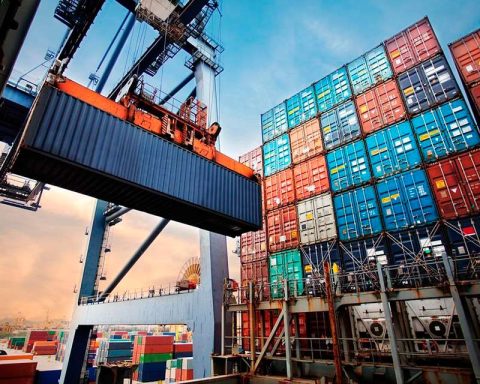CDMX, Mexico. This January 13, for the first time, the Cuban government mentioned the judicial process in which they are involved in the Commercial Court of the Royal Courts of Justice in London for non-payment of a debt.
With just over a week to go before the process formally begins, the Superintendence of the Central Bank of Cuba (BCC) posted a note on his official Web. In the text they acknowledge the dispute, but also state that the State is not responsible for the payment of the sum that amounts to 72 million euros.
The note, republished by the country’s main media, lies in some of its statements and exposes information that can easily be proven to be false.
Cubanet shares the conclusions of a verified in this regard signed by the economist Elijah Love.
What did they lie about?
According to the expert in your blog The first uncertain statement in the note is that “the BNC and Cuba have never ignored their debts.”
First, the economist denounces the little transparency that the Cuban regime has about its debts. To such an extent that for four years the external debt data has not been updated in the ONEI statistical yearbook. In other words, they have hidden the levels to which this item rises in the most serious years of the national economy.
Amor points out that while other countries regularly record their data in their own reports and in contrast with those of the organizations to which they belong, Cuba avoids it. He specifies that in the CEPA (Economic Commission for Latin America and the Caribbean) reports, the island is excluded from the statistical tables because the regime does not provide data.
“Cuba does not offer the information and specialists have to resort to indirect procedures to obtain an estimate, never the official data, unless the already mentioned delays are accepted,” Elías writes in his blog dedicated to analyzing economic issues.
For Amor, it is worrisome what the current data could be, if in 2019 Cuba’s external debt reached 20% of GDP for that year. “In other words, almost a fifth of the production of goods and services had to be used to pay commitments,” he points out.
To make the panorama more alarming, the expert explains that there are doubts that this is the real data. “Short-term debts, which are even the most negative because they fall on suppliers and suppliers, are even higher.”
Negotiate with creditors: false
Finally, Amor points out that another line of the official note does not adhere to the facts either. The text says: “they have always maintained the interest of negotiating with their legitimate creditors.” That is not true either.
In fact, the economist points out that Cuba is only interested in negotiating with those willing to waive and ease interest payments.
The professor exemplifies the case of the Paris Club and affirms that what they did with Cuba’s external debt is an operation that is difficult to find in other countries of the world.
“The facilities that national states grant to entrepreneurs doing business in Cuba are unparalleled with those of other countries. The claims are made, but the regime, following the disastrous lessons of the times of Fidel Castro, simply does not pay”, says Amor.
In his text, the expert questions that it would be convenient to know which of the Island’s creditors are up to date with the payment of their commitments; but that data is not available.
For Elías, a good part of Cuba’s current problems with foreign debt originate from the times of Fidel Castro. The dictator became famous for attacking international debt creditors in all the forums he attended. He didn’t want to pay and he didn’t hide it, simple as that.
Today without Fidel Castro in power, there is still concern that the island’s authorities continue to cling to the late dictator’s negative and irrational discourse, which presented countries that borrow as “the good guys” and creditors as “his enemies.”
“This is where despicable terms come from and nothing used in the literature of central banks that claim to be respectable, such as vulture funds or tax havens,” Elías writes about the terms used in the note from the Central Bank superintendency.
Finally, the economist advises the superintendency of the Central Bank of Cuba to ask for a public apology to those who lent the money to those who had no credit, Cuba. In addition, it seems to him that it is time to assume the mistakes made in the external debt policy and the commitments.
“Many of those who have lent money to Cuba since 1997, and years have passed since then, wonder what the regime has done with those funds, given that the Cuban economy has been in a worse situation since then,” he questions. Love to finish your analysis.
Receive information from CubaNet on your cell phone through WhatsApp. Send us a message with the word “CUBA” on the phone +525545038831, You can also subscribe to our electronic newsletter by giving click here.

















